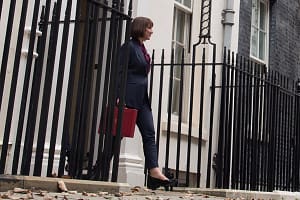The gross cost of pension tax relief hit £41.3 billion in 2019/20, up from £38.2 billion a year earlier, new HMRC figures published show.
Tax paid on pension incomes increased from £18.7 billion to £19.2 billion over the same period.
When tax on pension incomes is taken into account, the net cost of pension tax relief in 2019/20 was £22.1 billion, around £2.6 billion higher than the 2018/19 figure.
Over £31 billion was contributed to personal pensions in 2019/20, up from £27.9 billion in 2018/19Automatic enrolment has been the driving factor, with rising minimum contributions pushing up the average per member contribution from £3,000 in 2018/19 to £3,300 in 2019/20.
Over 42,000 taxpayers reported pension contributions exceeding the annual allowance by a total of £950 million in 2019/20, up from £820 million a year earlier.
Over 8,500 lifetime allowance charges were reported by pension schemes in 2019/20, with a total value of £342 million, a 21% increase from £283 million in 2018/19.
Tom Selby, head of retirement policy at AJ Bell, comments: “While a previous Chancellor once described the cost of pension tax relief as ‘eye-watering’, the main driver of this has been the success of automatic enrolment.
“Millions of people have been brought into pension saving as a result of the reforms, many for the first time.
“The fact the cost of pension tax relief is edging up simply reflects the success of auto-enrolment and represents an investment in the future for millions of people.
“This is good news for those individuals and, over the long-term, should be good news for the Treasury too as it will reduce the likelihood of people falling back on the state in old age.
“While rumours of radical pension tax relief reform are always likely to swirl – particularly ahead of a Budget when the public finances are severely strained – it acts as a vital incentive to encourage people to plan for the future and automatically bolsters the value of millions of retirement pots.
“Historically pensions have all-too-often been seen as a honeypot for Chancellors looking to boost their short-term balance sheet.
“But the reality is that too many people are still saving too little to fund a decent retirement and successive Governments have added damaging complexity and uncertainty to the system.
“Encouraging higher levels of saving and making the rules people have to navigate simpler must therefore be a priority for the Government.”
Annual and lifetime allowance charges jump
“As both the annual and lifetime allowance have been repeatedly hacked back over the past decade or so, it is no surprise to see the Exchequer raking in more tax as a result.
“However, the amount raised by the annual and lifetime allowances in the context of the UK’s finances is relatively small, with horrific complexity in the retirement system the price we all have to pay.
“The decision to freeze the lifetime allowance at £1,073,100 until the end of this Parliament will inevitably drag more people into paying lifetime allowance charges, further boosting Chancellor Rishi Sunak’s coffers.
“Hiking the point at which the annual allowance taper kicks in by £90,000 from 2020/21 onwards, on the other hand, will reduce the amount of cash the Treasury nets from pension savers.”






Leave a Comment